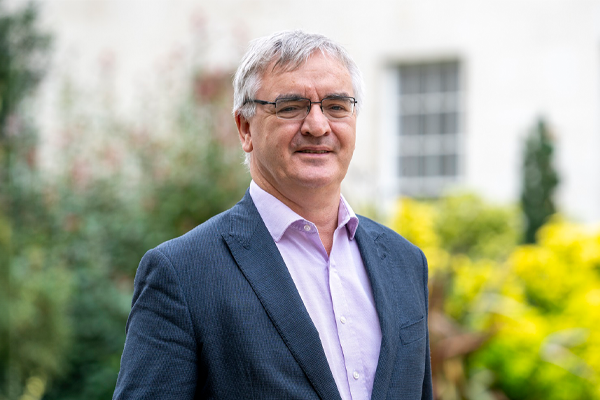Nottingham researchers have been awarded over £3.5m to investigate new technologies for solving medical challenges in the treatment of cancer, diabetes and lung disease.
Three projects from the University of Nottingham are among 36 projects sharing £32.4m from the first round of UKRI's new cross research council responsive mode pilot scheme, designed to stimulate exciting new interdisciplinary research.
Additionally, the second round of funding is launching today with a further £32.5 million available.
Professor Guru Aithal from the School of Medicine will lead a project to develop ground-breaking technologies, snake-like robot and wireless electrical treatment to diagnose, map and treat cholangiocarcinoma (bile duct cancer).
The snake-like robot will navigate the narrowed bile duct and capture images to draw a 3D map of the cancer. Stents placed across the narrowing will be pre-loaded with nanoparticles and activated using wireless electrical fields to stimulate the death of cancer cells.
The project brings together experts in medicine, endoscopy, engineering, robotics, physics, imaging, bioelectrics and genomics to improve survival and quality of life for patients with cholangiocarcinoma.
Professor Morgan Alexander in the School of Pharmacy is leading a project to understand the body's response to implanted devices and why they fail, focusing on glucose sensors used to manage Type 1 Diabetes.
This collaboration involves experts in bioelectronics, biomaterials science, medical device engineering, immunology and clinical diabetology who will develop a wireless monitoring approach in the clinic to non-invasively observe the evolution of the body's response to implanted devices, with the aim of showing how personalising and likely lengthening this replacement time has obvious benefits for patients and the healthcare providers.
Professor Bindi Brook from the Centre of Mathematical Medicine and Biology, School of Mathematical Sciences, has been awarded £1.1m to develop validated computational models of destructive lung disease progression and a virtual platform for testing novel therapies. The team's aim is to ultimately contribute to a digital twin of the lung that will enable clinicians to provide the appropriate treatment, to the right patient, at the right time.
The project will use quantitative imaging, biological and clinical data of tissue injury and repair from patients with two types of serious lung disease – lymphangioleiomyomatosis LAM and COPD - alongside the development of mathematical and computational models to predict changes in lung structure and function.

Congratulations to the researchers on being awarded this important funding. Each project is bringing together multidisciplinary expertise from across the University to explore innovative ways to use technology to potentially transform the treatment of some of the most serious diseases faced by society.
The UKRI cross research council responsive mode (CRCRM) pilot scheme is supporting new and creative interdisciplinary ideas emerging from the research community. It aims to:
- unlock new research, new approaches or new methods that would not emerge from established disciplinary thinking
- demonstrate reciprocal research benefits through the integration of distinct disciplinary perspectives and spheres of knowledge
- support breakthrough or disruptive ideas and collaborations
- incentivise new and unexpected types of interdisciplinary research not routinely funded through existing UKRI responsive mode schemes
- encourage speculative, early stage and high potential interdisciplinary research proposals, embracing new concepts, techniques, or technologies
The perspectives of different disciplines, working together in collaboration, are vital to solving some of the most pressing problems we face as a society. The UKRI cross research council responsive mode scheme is designed to break down silos and champion research that transcends, combines and significantly spans traditional discipline boundaries. The projects announced today will drive progress across diverse fields by creating fresh approaches to research questions, methodologies and ways of working. We were all excited to see the innovative and bold approaches being adopted to tackle major issues ranging from climate change to global healthcare and look forward to following their progress.






